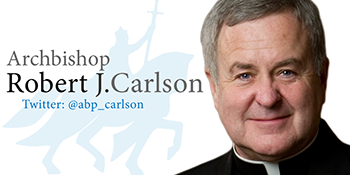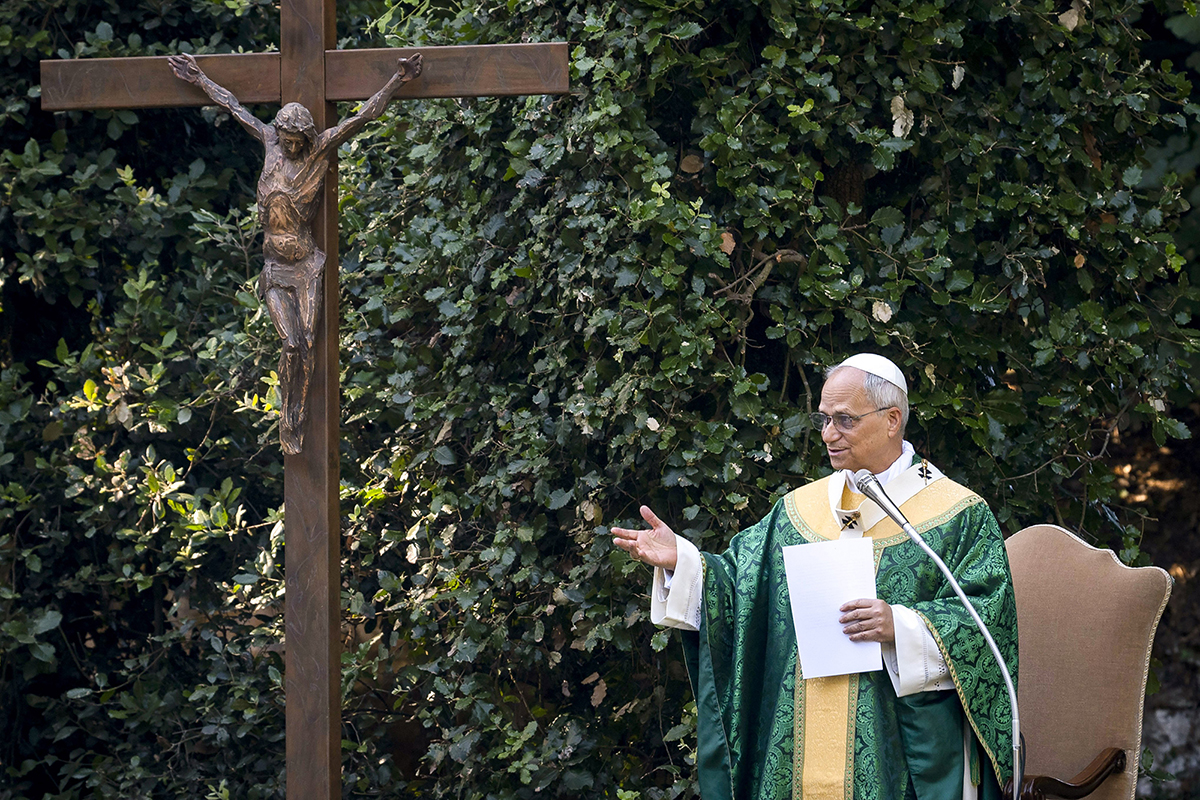BEFORE THE CROSS | Mary’s Assumption is both a truth and a goal
The Feast of the Assumption encourages us to ensure every aspect of our life moves us toward the heavenly goal

“(B)y the authority of our Lord Jesus Christ, of the Blessed Apostles Peter and Paul, and by our own authority, we pronounce, declare, and define it to be a divinely revealed dogma: that the Immaculate Mother of God, the ever Virgin Mary, having completed the course of her earthly life, was assumed body and soul into heavenly glory.”
— Pope Pius XII, Nov. 1, 1950
The truth
At the moment of death, each of us will be judged by Christ. Our souls will immediately enter heaven, purgatory or hell. This is known as the particular judgment. Then we will await the end of time, when our souls will be reunited with our bodies for all eternity in heaven or in hell. This is known as the general judgment.
At least, that’s the general rule. The exception is Mary. When we celebrate the Assumption this week (Aug. 15) we’re celebrating the fact — long taught by the Church, and confirmed by dogmatic declaration in 1950 — that Mary, after her earthly life, was assumed body and soul into heavenly glory.
The teaching on the Assumption is one that all Catholics are bound to hold with the highest certainty. That is to say, anyone is free to deny Mary’s Assumption; but in doing so they declare themselves not to be Catholic.
The goal
The reasons for the teaching on the Assumption are beautifully laid out by Pope Pius XII in his dogmatic declaration “Munificentissimus Deus.” I encourage everyone to read it. What I want to add here, however, is that the Feast of the Assumption is not only a celebration of a truth about Mary, it also holds out a goal for all of us. When we celebrate Mary’s Assumption, we’re simultaneously declaring what happened to Mary and what we hope will happen to each of us at the general judgment. Mary dwells, body and soul, in heaven for all eternity. We hope to do the same. The Feast of the Assumption both celebrates the fact and urges us on toward the goal.
The criterion
But to celebrate the Assumption is also to articulate a criterion for judging our lives. Does every aspect of our life move us toward this goal? Does every thought and feeling and action and program draw us (and others) closer to the glorious unification of our bodies and souls in heaven, under the reign of Jesus Christ, or do we rebel against it?
It’s a high discipline, to be sure — to subject every aspect of our lives to this test. But the Feast of the Assumption calls us to nothing less.
Current culture seems to be enamored with zombies — bodies without souls. Cultural morality often mirrors this, thinking that the actions of our bodies have no effect on our souls. The Feast of the Assumption calls us to be counter-cultural: to see the body and soul as intimately united in this life, and to allow grace to draw us along Mary’s path, ultimately bringing body and soul together to heaven.
“(B)y the authority of our Lord Jesus Christ, of the Blessed Apostles Peter and Paul, and by our own authority, we pronounce, declare, and define it to be a divinely … BEFORE THE CROSS | Mary’s Assumption is both a truth and a goal
Subscribe to Read All St. Louis Review Stories
All readers receive 5 stories to read free per month. After that, readers will need to be logged in.
If you are currently receive the St. Louis Review at your home or office, please send your name and address (and subscriber id if you know it) to subscriptions@stlouisreview.com to get your login information.
If you are not currently a subscriber to the St. Louis Review, please contact subscriptions@stlouisreview.com for information on how to subscribe.




